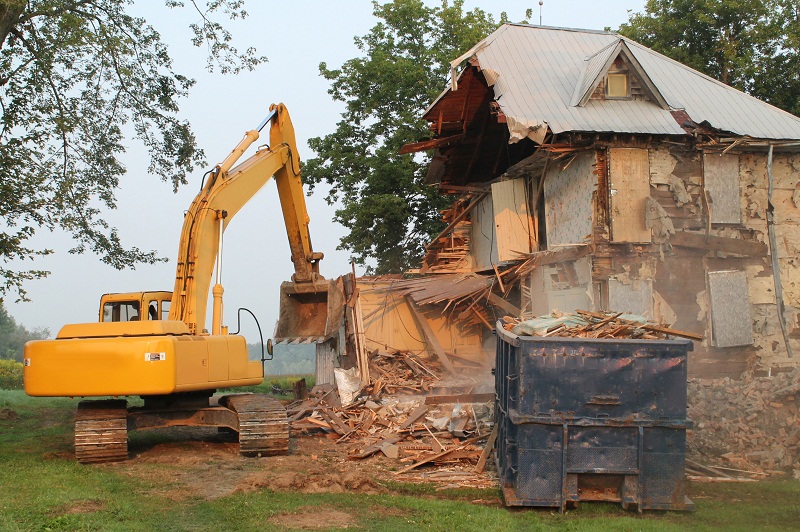Introduction
When it comes to demolition projects, one of the most common concerns is the cost. How much will it cost to demolish a structure? Is it possible to get a fixed price demolition? These are important questions to ask when planning a demolition project, as the costs can vary greatly depending on several factors. In this comprehensive guide, we'll explore the factors that affect fixed price demolition costs and provide you with valuable insights to help you make informed decisions when hiring demolition contractors and services.
 |
| Fixed Price Demolition |
What is Fixed Price Demolition?
Fixed price demolition is a pricing model offered by some demolition contractors, where the cost of the demolition project is predetermined and agreed upon before the work begins. This means that the client will pay a fixed amount for the entire project, regardless of any unforeseen complications or changes that may occur during the demolition process. This pricing model can provide clients with a sense of security and predictability, as they know exactly how much they will be spending on the demolition project from the outset.
-
Factors Affecting Fixed Price Demolition Costs
- Size and complexity of the project
One of the most significant factors affecting the cost of a fixed price demolition is the size and complexity of the project. Larger, more complex projects will generally cost more than smaller, simpler ones. This is because larger projects require more labor, equipment, and time to complete, which translates to higher costs for the demolition contractor. Additionally, more complex projects may involve unique challenges or obstacles that can increase the overall cost of the project. - Type of building or structure
The type of building or structure being demolished also plays a role in determining the cost of a fixed price demolition. Different types of structures, such as residential, commercial, or industrial buildings, have varying levels of complexity and may require different demolition methods. For example, demolishing a large concrete structure may require specialized equipment and techniques, which can increase the cost of the project compared to demolishing a smaller wood-framed building. - Location and accessibility
The location of the demolition project and its accessibility can also impact the cost of a fixed price demolition. Projects in remote or hard-to-reach areas may require additional transportation and logistical expenses, which can increase the overall cost of the project. Additionally, projects in densely populated urban areas may require extra precautions and safety measures, which can also add to the cost. - Presence of hazardous materials
The presence of hazardous materials, such as asbestos, lead, or mold, can significantly increase the cost of a fixed price demolition project. These materials require specialized handling and disposal procedures to ensure the safety of workers and the surrounding environment. As a result, demolition contractors may charge more for projects that involve hazardous materials to cover the additional labor, equipment, and disposal costs. - Permit and regulatory requirements
Permit and regulatory requirements can also affect the cost of a fixed price demolition project. Depending on the location and type of project, demolition contractors may need to obtain various permits and comply with specific regulations, which can add to the overall cost of the project. Additionally, some projects may require inspections, testing, or other compliance measures, which can also increase the cost.
-
How to Obtain a Fixed Price Demolition Estimate
To obtain a fixed price demolition estimate, it's essential to provide the demolition contractor with as much information as possible about the project. This may include details about the size and type of structure, its location and accessibility, and any known hazardous materials present. Providing this information upfront can help the contractor accurately assess the project's scope and provide a more accurate fixed price estimate.
It's also a good idea to get estimates from multiple demolition contractors to compare costs and services. This can help you find the best value and ensure that you're getting a fair price for your demolition project.
-
Benefits of Fixed Price Demolition
There are several benefits to choosing fixed price demolition for your project, including:
- Cost predictability: With a fixed price demolition, you know exactly how much the project will cost from the outset, making it easier to budget and plan for the expense.
- Reduced risk of cost overruns: Since the price is fixed, you won't have to worry about unexpected costs or overruns that can occur with other pricing models.
- Simplified decision-making: Knowing the cost upfront can make it easier to compare demolition contractors and services, helping you make an informed decision about which company to hire.
- Greater accountability: With a fixed price demolition, the contractor is responsible for completing the project within the agreed-upon budget, which can help ensure that the work is done efficiently and professionally.
Conclusion
Fixed price demolition can provide a cost-effective and predictable solution for your demolition project. By understanding the factors that affect demolition costs and obtaining accurate estimates from multiple contractors, you can make informed decisions and ensure a successful outcome for your project. With the benefits of cost predictability, reduced risk of overruns, simplified decision-making, and greater accountability, fixed price demolition can be an excellent option for your next demolition project.